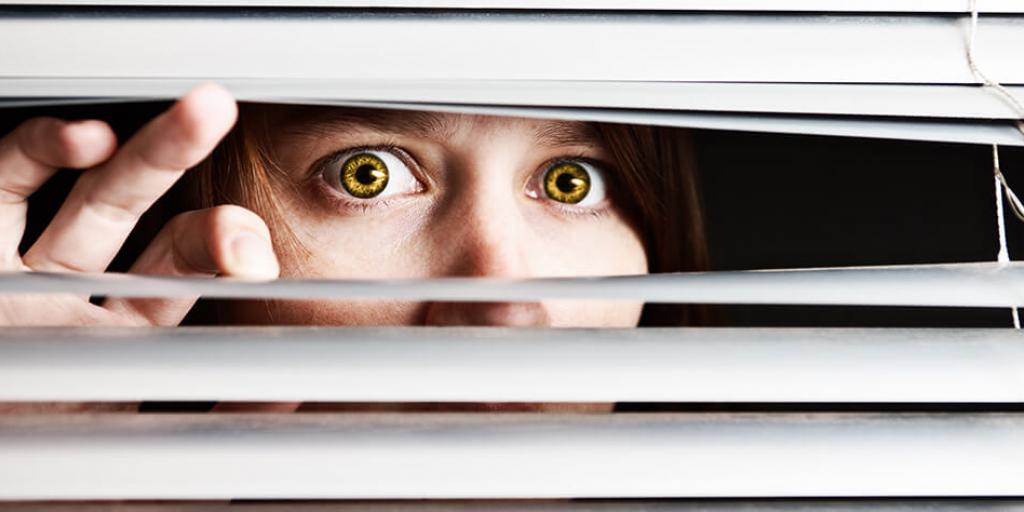
Faith or Fear?
People have all kinds of fears. Even the bravest among us, though they may not like to admit it, have a fear or two lurking in their minds. Whether it be a common one, like the fear of public speaking (Glossophobia), or a quirky one, like the fear of clowns (Coulrophobia), fears are unpleasant. What are you afraid of?
Most of us are able to function normally, maintain a job, have a family, and generally enjoy life despite being afraid of various things. But some are paralyzed by their fears and may suffer some degree of incapacitation that causes them to be unable to live a normal life.
What should we do about our fears?
Of course, there are healthy fears that keep us from doing foolish and dangerous things, like swimming in alligator- or shark-infested waters, walking carelessly on the edge of a cliff, or throwing rocks at a hornet nest. These fears help us take sensible precautions. We toss out food that we suspect may be spoiled. We fill the gas tanks or charge the batteries of our cars to keep them from stopping in the middle of a busy freeway. Having healthy, common-sense fears helps us take prudent measures to ensure our safety and that of others.
But irrational fears are another matter. Fears such as Disposophobia (the fear of discarding things, leading to extreme hoarding), or Telephonophobia (the fear of talking on the phone), cause debilitating anxiety.
Fear is an emotion based on our perception of a threat or danger, whether real or imagined, whereby we experience distress and anxiety.
So, how should we handle fear? Franklin D. Roosevelt is often quoted for a statement he made in his first inaugural address on March 4, 1933. He said, “[T]he only thing we have to fear, is fear itself.” That statement inspired confidence in a time of uncertainty during the Great Depression. But is that statement entirely accurate? Should we be afraid of fear? Should we be fearless? Are there some things we should fear, and, if so, what are they? What should we not fear? And how do we conquer our fears?
I’ll leave the therapies to the psychologists, but I refuse to believe that our response to fear comes from a “fight or flight” mechanism we inherited from fictional evolutionary caveman forbears. However, there are some plain and simple statements in the Creator’s book, the Holy Bible, that we should consider.
For instance, 1 Peter 2:17 says we should “Fear God.” The word “fear” in this instance really means to revere and be in awe of God. But 1 Peter 1:17 says, “And if you call on the Father, who without partiality judges according to each one’s work, conduct yourselves throughout the time of your stay here in fear….” The word fear in this instance is phobos, which means to be exceedingly afraid. Life is short, and death stares us all in the face, but Jesus Christ became flesh that “through death He might destroy him who had the power of death, that is, the devil, and release those who through fear of death were all their lifetime subject to bondage” (Hebrews 2:14–15). The follower of Jesus Christ can trust Him, “For He Himself has said, ‘I will never leave you nor forsake you.’ So we may boldly say: ‘The Lord is my helper; I will not fear. What can man do to me?’” (Hebrews 13:5–6).
Knowing that God loves us, that we can abide in Him, and that His love is perfected among us, we can have boldness, for “There is no fear in love; but perfect love casts out fear, because fear involves torment. But he who fears has not been made perfect in love” (1 John 4:16–18).
A true Christian receives God’s Holy Spirit, and “God has not given us a spirit of fear, but of power and of love and of a sound mind” (2 Timothy 1:7).
So, we have nothing to fear if we have awe and reverence towards Almighty God.
Common sense tells us we need to identify our fear and face it. You can face yours, and there is help. Be sure to read or listen to “Fear, Frustration or Faith?” and “Do You ‘Fear’ God?” today!
Stay up to date with our Weekly Digest Email!
Tomorrow's World ComMentary Podcast
Subscribe to Tomorrow's World Commentary podcasts on iTunes and Google Play!



